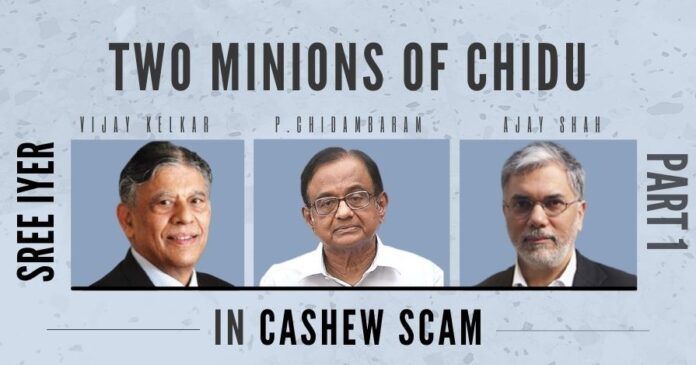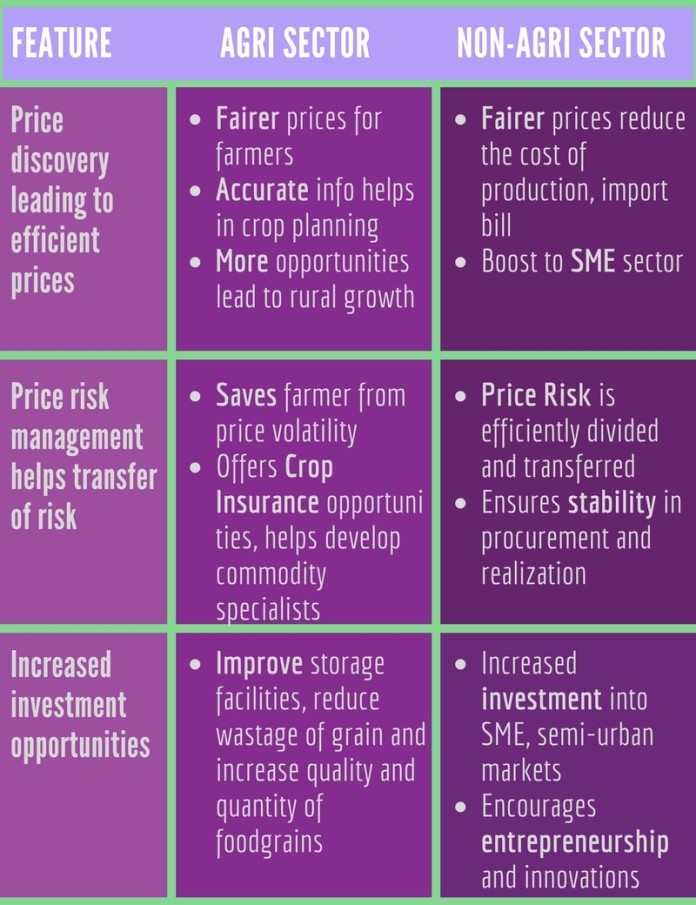
The Cashew scam
C-Company strikes. Again. This time in Rajamahendravaram, popularly called Rajahmundry. National Bulk Holding Corporation (NBHC), 100% owned by a Private Equity (PE) fund True North, abetted the owners of a Cashew company, M/s Surya Sree Cashew Products, in making cashews vanish. The scam, amounting to about Rs.20 crores is simple – someone tried to pass of Cashew shells as Cashews and ripped off the loaning bank, Punjab National Bank (PNB)[1].
In a First Information Report (FIR) filed by PNB Rajamahendravaram branch, the bank (PNB) said that it had provided financing to Surya Sree Cashew Products and claimed that the company partners in collusion with NBHC (the custodian of the stock), which had guaranteed the stock and its quality/ quantity, made about Rs.20 crores worth of cashew stock disappear.
Jignesh Shah was not satisfied just with establishing a Multi-Commodity Exchange (MCX). There was a need for having warehousing facilities with Cold Storage features so commodities could be stored.
How do Banks finance against commodities?
It must be kept in mind here that Banks do not go and physically verify the stock in an NBHC godown before financing – they see the NBHC certificate and approve it. NBHC is the sole custodian of the goods and gets paid a fee to maintain the premises, keeping the godowns free of pests and vermin and maintaining the right temperature.
So, when the time came to check the inventory, imagine the surprise when the Bank found cashew shells instead of whole cashews! Hence they filed FIR and now it is rumoured that Vijay Kelkar and Ajay Shah are trying to get their names removed from it. CBI should not allow it; this is the tip of a much bigger scam – a sly method that was used to launder money and basically steal goods in plain sight[2].
The C-Company connection
Before we jump headlong, let us see how the principal actors from C-Company found their names in the CBI’s FIR (attached at the end of this post). When Jignesh Shah was foisted with the NSEL crisis, all his group companies were stripped from him and bought for fire-sale prices. Here is the backgrounder on NBHC from my article titled C-Company Part 6 – FTIL – An engine that created millions of jobs[3]. MCX needed a sister concern that could warehouse the commodities. And NBHC was born.
How MCX and NBHC worked together
Jignesh Shah was not satisfied just with establishing a Multi-Commodity Exchange (MCX). There was a need for having warehousing facilities with Cold Storage features so commodities could be stored. An important requirement was the quality that had to be maintained (otherwise how could you trade?). If potatoes were to be traded, they have to be of the same size or very close in order for them to be traded on an exchange. From this need grew the next idea for Shah – The National Bulk Handling Corporation (NBHC). At its peak, it was the largest warehouse and collateral management facility in the private sector in India.

Having a standardized procurement center across the length and breadth of India had its advantages – Multi-national fast food chains did not mind paying a premium of up to 25% more for produce warehoused at the NBHC since they were assured of the quality.
NBHC also eliminated the middleman that used to gobble up much of the profit the farmer made because the farmer did not have a way to store his produce. With MCX and NBHC, farmers knew the day to day pricing information and could be assured that they could realize the best profit. The benefits were not limited to the agricultural sector alone – Non-agricultural sector also reaped the benefits (see Figure 2).

But this was till 2013! Once Shah was stripped of NBHC, the venture fund company True North acquired NBHC. Now, who or what is True North? The recently released book Market Mafia describes its dubious ownership details in detail and will be discussed in the subsequent episodes[4]. At the time of the acquisition, NBHC was the best among its category. Since then, things have gone downhill.
The C-Company head honcho stopped NBHC once and now, when the government has passed as law, the same set of venal individuals are funding this and the external forces are also pitching in. All the fat cats owning large tracts of land will have to pay taxes on the produce. I have said this before, and will say it again – the three-set of Farmer Bills are beneficial to the farmer.
Here is the FIR:
CBI FIR based on PNB's complaint in the Cashew scam by PGurus on Scribd
To be continued…
References:
[1] AP company cheated PNB of Rs 20 Crore by replacing cashews with shells – Jan 03, 2021, News Meter
[2] ‘Vijay Kelkar, others had no role in cashew fraud’ – Jan 12, 2021, ToI
[3] C-Company Part 6 – FTIL – An engine that created millions of jobs – Nov 18, 2017, PGurus.com
[4] The Market Mafia: Chronicle of India’s High-Tech Stock Market Scandal & The Cabal That Went Scot-Free. – Amazon.in
- Indian Parliament’s Special Session is convened to mark the shifting to new Parliament building - September 3, 2023
- Why did Rajat Sharma of India TV not declare that Adani owns more than 16% shares in his channel? - January 29, 2023
- Prannoy Roy to get Rs.605 crore from Adani as per Stock Exchange filing. Why is Income Tax not acting on Roys’ dues of over Rs.800 crore? - January 4, 2023











[…] NBHC – Another Jignesh Shah idea plundered and now CBI books Kelkar, Shah – Jan 16, 2021, […]
Sir, you keep writing, we keep reading, as usual nothing will happen in NDA rule. Six years and counting, no one punished. All free outside, Long love our democracy. Bharat Mata ki Jai. Jai Hind.